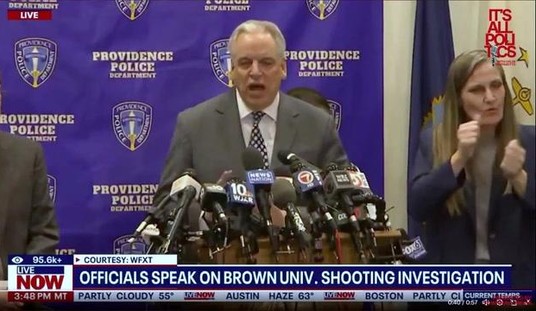In recent weeks, Rep. Michele Bachmann (R- MN) and four other members of Congress caused a firestorm by issuing a series of letters to the State Department, the Pentagon, and other government agencies calling for an investigation into efforts by the Muslim Brotherhood to influence policymaking in Washington. Whatever the merits of their specific charges, they are quite correct that the Obama administration’s reluctance to assign nefarious intent to Islamists in general, and the rising political arm of the Brotherhood in particular, is a terrible triumph of political correctness over national security.
You wouldn’t know it from the anti-Bachmann backlash these letters generated, but it’s hardly unusual to raise concerns about suspected affiliations with enemies abroad, particularly in wartime. Indeed, the federal government has an array of laws and regulations designed to prevent foreign influence operations. For example, the State Department says that it conducts background checks on high-level employees to determine whether their “personal and professional history indicates loyalty to the United States, strength of character, trustworthiness, honesty, reliability, discretion, and sound judgment, as well as freedom from conflicting allegiances and potential for coercion.”
What ruffled feathers was their suggestion that the Obama administration has been remiss in applying these standards and Bachmann’s reference to Huma Abedin, deputy chief of staff to Secretary of State Clinton, whose mother, brother, and late father have well-documented connections to Muslim Brotherhood-affiliated organizations. To what extent these connections are germane to approving security clearance is unclear. Radical Islamists are so thoroughly represented in mainstream Islamic institutions that some associational affiliations may not always be a smoking gun. Sorting through these questions is not easy – that is what the investigation is for.
According to Bachmann and many others, the way policymakers in Washington frame the Islamist threat raises serious questions about whether Abedin and other Muslims in positions of influence have been properly vetted. Her claim is not that Abedin is an operative or even supporter of the Muslim Brotherhood – a movement affiliated with anti-American terrorist groups – but that we wouldn’t know it if she was.
Though the United States is fighting hostile entities operating with a declaratively Muslim identity, there is a clear trend in the executive branch, law enforcement, and even the judiciary to deny that Islamism has an impact on national security, for fear of appearing discriminatory. Attorney General Eric Holder’s acrobatic refusal to concede during a May 2010 congressional hearing that radical Islam might be a factor fueling homegrown terrorism is a disturbing display of this trend.
This administration has been particularly reluctant to acknowledge the darker side of the Muslim Brotherhood. Though most chapters of the Brotherhood have ostensibly renounced violence and embraced democratic politics, the movement remains a terror organization in its ideology and incitement activities. Moreover, the Palestinian branch, Hamas, commits horrific acts of violence and raises funds under its auspices. The United States should not accept the legitimacy of the Brotherhood simply because it has succeeded in achieving unconscionable goals through peaceful means. “Had the Nazis denounced violence, would Hitler have become an acceptable chancellor for Germany?” notes Daniel Pipes. “Not likely.”
The consequences for U.S. national security of the Obama administration’s failure to name the enemy are quite serious. Most notable is the FBI’s failure to follow up on evidence that Maj. Nidal Hasan was corresponding via email with the late Anwar al-Awlaki in the months leading up to the 2009 Fort Hood massacre. Investigating American Muslims who communicate with radical jihadist clerics about the permissibility of killing American GIs was unfortunately considered too politically sensitive. Thirteen American soldiers died as a result.
Bachmann is being accused of racism because of her insinuation that Muslim applicants with questionable affiliations appointed to sensitive federal posts should be subjected to extra scrutiny. After decades of building a strong foundation of civil rights, social equality, and cultural tolerance in this country, many Americans are loathe to accept that these ideals must now be compromised in order to prevail against radical Islamism. However, while ethnic profiling may be objectionable as a method of combating car thefts, it is unfortunately essential to the robust defense of American national security. Whether we should go so far as to establish a House Committee on Internal Security, as some have suggested, is debatable. Whether Islamic radicalism constitutes a special danger requiring special means is not.









Join the conversation as a VIP Member